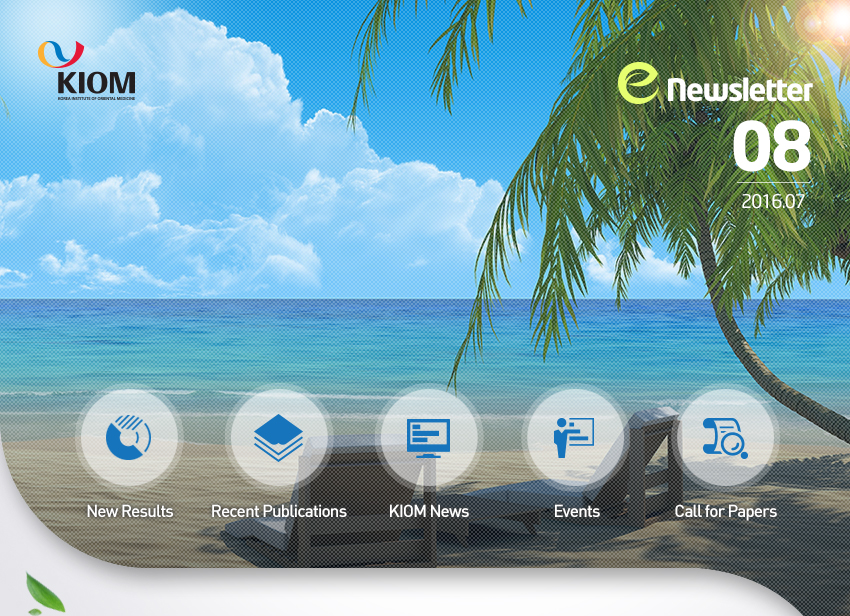 |

From May 6th to 26th, KIOM conducted a Korean medicine training program, 'Modernization of Traditional Medicine' for foreign professionals of health and medical treatment.
The 'Modernization of Traditional Medicine' is an official development assistance program supported from Korea International Cooperation Agency (KOICA). This year was the 16th time since the program was first conducted in 2001.
14 professionals of health care working for government ministries, national health organizations, medical colleges and hospitals in 9 countries including Bhutan, Cambodia, Ethiopia, Myanmar, Nepal, Paraguay, Peru, Uganda and Uzbekistan participated in the program.
Many Korean experts in Korean medicine, health and medical treatment area from KIOM as well as Ministry of Food and Drug Safety, College of Korean Medicine at Kyung Hee University, Graduate School of Korean Medicine of Pusan National University, Department of Health Care Administration of Dongyang University, etc., gave lectures for the program.

The participants took lectures on the theory of Korean medicine such as herbal medicine, sasang constitution medicine, therapeutic technologies, etc. Also, they learned about the current status of Korean medicine including policy, education system, insurance system, etc. Discussion about the modernization method and future direction of traditional medicine was followed.
Along with the lectures and discussions, participants visited related institutions such as the Bureau of Traditional Korean Medicine of the Ministry of Health and Welfare, University of Science & Technology, Oriental Medicine Hospitals, Museum of Korean Medicine, The Association of Korean Medicine, Korean Pharmacopuncture Institute, National Crude Drug Resources Management Center at the Ministry of Food and Drug Safety, Ginseng Museum, Ginseng Plant of Korea Ginseng Corporation, and so on.
This training program, which is being conducted for experts playing a key role in health and medical treatment in developing countries, has been contributing to their national health development. The program lived up to its name for promoting global positioning of Korean medicine and its superiority.

 |
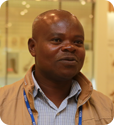 |
 |
This program is like a mustard seed with desirable characteristics that one sells to farmers to propagate in order to achieve good harvest. But in this case, it’s a pilgrim where the stake holders of Health sectors from different selected countries with different health systems and practices in Traditional Medicine (TM) are invited to share experiences and practices, knowledge based on the different cultures on how TM can be modernized.
KIOM is a training hub and center of convergence with the primary goal of modernizing TM. As a health practitioner/provider our primary role is to deliver health services to the people through promotion of use of TM along side conventional medicine.
To succeed in these we need to;
- Promote and advocate for integration of TM knowledge and medicine in the school
curriculum from lower to upper
- Promote research in the area of TM and produce results based studies
- Develop standardized TM products
- Promote collaborative research studies between western trained doctors and eastern
trained doctors
- Organize conferences/seminar and disseminate our findings in this are of TM
- Promote higher studies in the area of TM like the Korean example.
- Promote conservation for sustainable utilization of TM
- Produce publications of studies
done in TM
- Regularly meet and review progress in TM modernization
The benefits are network with other friends, production of standardized products, interest in further studies in TM, work towards integration of TM into mainstream health delivery system and introduction of simple healing techniques in treatment of patients. |
|
|
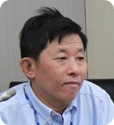 |
 |
KOICA gave me the opportunity to learn more about traditional medicine (TM), especially Korea and Korean medicine (KM). KIOM improved my knowledge of Korean Health Care System, Health Education System, Public health Program, National health Insurance, TM products, and we also had the city and museum tours.
The training made me to understand the Korean Health System. Korea is very fast developed country because of government and people. The government’s decision was on the right way and they committed to achieve the goals. Korean citizen have supported and taken part in government activities; moreover, they contributed for their country.
After training, I have shared my understanding and experience in Korea to my managers, colleagues and friends. They were interested in the course and highly appreciated to the development of KM as well as Korea. My management team wants to know more about KM education system of Korea. Recently they sent 2 deputies to visit to KM education system in Korea because Cambodia plans to establish TM academic education. So, the training course of Modernization of Traditional Medicine is very important for TM of Cambodia that is developing.
Thank you very much for your coordination and assistance during the course and huge thank for KOICA and KIOM for preparation this important training with strong support and allow me to participate. |
|
|
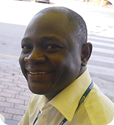 |
 |
I am one of the participants of the KOICA fellowship program 2016 and I represented my country, Uganda with my colleague in the fellowship program entitled “Modernization of Traditional Medicine”, at Korea Institute of Oriental Medicine in Daejeon City.
The program exposed me to the advancement of Korean Medicine (KM), this inspired me to further advocate for modernization of traditional medicine (TM) in Uganda. Right now I am working on a research concepts with the aim of advocating for the modernization and integration of TM in health services in Uganda. This is due to the fact that over 60% of population in Uganda use TM as primary health care.
This program also exposed me to the role of conservation of traditional culture and use it to develop solutions to challenges that affect people, and the integration of naturally endowed resources to benefit mankind. The aim of conservation is as a result of the increased risk of extinction of medicinal plants in Uganda.
The fellowship program, also played as a platform for connecting with different researchers, professors and other participants from various parts of the globe. This enabled me to share knowledge on how TM has advanced over centuries and how it has helped in solving public health challenges of the 21stcentury and the contribution of TM to universal health coverage.
In conclusion, this program met my expectations and I am implementing some of the lessons learnt like, conservation of medicinal plants, prospects of integration of TM and allopathic medicine, among others. Therefore, the program is very much relevant in promoting global collaboration and development and indeed the time is now that the world should know South Korea is a world friend. |
|
|
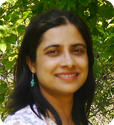 |
 |
First of all I would like to thanks to program organizers of KIOM and other presenters for making this valuable opportunity available to all of us. This three weeks training program on modernization of Traditional Medicine was very informative, very well presented and enjoyable.
We have learned many things about traditional medicine (TM) and acupuncture from the training that will assist me in my workplace, the Annapurna Neuro Hospital and Central Ayurveda Hospital. I have already started some of the strategies and treatment methods that you had taught us there, especially acupuncture, moxibustion and cupping therapy to our patients, and found that it is working remarkably well.
I went to a meeting last week with our hospital director Dr. Basanta Panta (a famous Neurosurgeon in Asia) and we talked to other Neurosurgeons and Neurophysicians about your training, especially about the effectiveness of acupuncture therapy and research results that you have done in stroke, epilepsy, Parkinson, and other neuro problems. They were very interested about the acupuncture. As I had completed my MD in acupuncture, moxibustion and Tuina from China, they all are ready to promote TM in integrative way and they all are also very interested to attend such programs and training in near future.
Again thanks for the wonderful program and new skills I now have. Keep enjoying what you KIOM are doing, it is very much appreciated. |
|
|
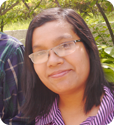 |
 |
I am Dr. Yin Lae Wai from Myanmar and I visited Korea in May to attend the training course, 'Modernization of Traditional Medicine.' During this training period, I learned many things about Korea, KIOM, Korean medicine and the culture of Korean people. The most interesting and impressing thing for me was research based on traditional medicine. The most valuable thing I got in this period was the efforts of Korean people in all of the matter. It reminded me to do more for my country. I'll always thank all of the KIOM team for sharing the amazing things of Korea (Korean Medicine), providing the comfortable environment in foreign country and giving the opportunity to learn about the improvement of Korean Medicine. I also thank for the kindness of Korean people. |
|
|
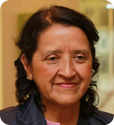 |
 |
The experience developed in Korea from 6 to 26 May in Seongnam and Daejeon has left a mark on my life. The discovery of Korea, its culture, its geography, its technology, but especially in its people; because it allowed me to better understand Korean traditional medicine, its application, its progress and its future prospects.
I want to start with the recognition of the KOICA Agency, because it’s an excellent institution and very altruistic objectives: "Making a better world together" |
|
|
|
|
